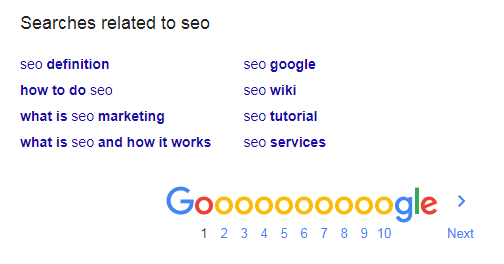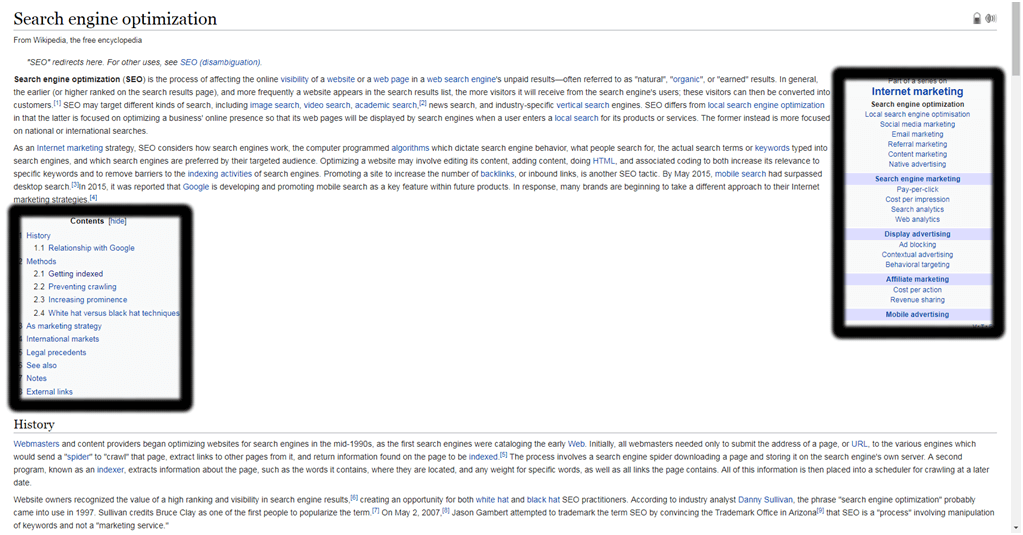Without a doubt one of the most important and labor intensive processes of SEO, is researching keywords that your site can rank for. It’s vital to choose carefully when making your selection; the keywords have to be relevant to the content of the site, have good search volume so people will actually see your content, and not be overly difficult to get rankings for. A small site may never rank for keywords that huge sites are all targeting, but there are always alternatives. It’s also very important to select search terms that are related to your subject as this allows you to broaden your list of targeted words without hedging all your bets on a single keyword.
That’s all well and good, but the big question still remains: where should I start looking?
I’ll tell you.
Let’s Start Researching Keywords
First thing is first:
Choose a subject you want to rank for. This could be a business service you offer, a specific subject you want to write about, or anything really. For this article I will be using the keyword “SEO” to demonstrate.
Below we’ll list out several options that are great for beginners to get started with the process of finding great ideas for keywords they may want to start ranking for. All of these will be free options but some may be freemium (free tools that have paid features).
Google Related Searches
We’ll start by typing SEO into Google and having a look at what comes up. Scroll all the way down to the bottom and check out the searches related to section. Google provides a list of related search terms which is a great resource for selecting relevant keywords on your topic.

Do you want to know the best bit?
Most people don’t even bother looking at this. See a potential keyword you might want to target? Add it to the list and then click on the link, scroll down, and see what’s related to the term you selected. Google’s related searches are a gold mine, but be careful not to stray too far from your chosen topic.
Reddit Threads
You can find almost anything on Reddit. Enter your topic in the search bar and scroll through the results, paying attention to post titles. These are great for showing you search terms in the form of a question a human might ask. If you see posts that frequently include phrases “how to do SEO”, for example, the keyword phrase you many want to target could be “How to do SEO”. This can also be a great resource if you’re having trouble deciding on a topic to write about. A frequently asked question can be the perfect subject to target as you’ll already know there is an audience for it.
Mining Wikipedia
Speaking about untapped gold mines, Wikipedia is an awesome resource for finding good search terms. Look up the wiki page for your specific topic and take a gander at the table of contents on the page.

See all of those headings? Those are all great related terms you can take advantage of, and if you want to go a bit deeper, take a look at the links in the content of each section. Those are all related to your subject and may be a good option for you to use.
The Untapped Resource of Amazon
This might seem like an odd one at first glance, but bear with me here. Venture over to Amazon and enter your topic into the search bar, select “Books”, and search. Now choose a book from the list, and click “look inside”, find its table of contents and BEHOLD!
See all of those?
That’s right, they’re keywords related to your topic. And the best part is you didn’t even have to think of them yourself! As always, take a look and see what fits with your subject and add them to your ever growing list of keywords. This is another one of those little known tricks for finding good keywords, and if you capitalize on it you’re already pulling ahead of the competition.
Research Tools
There are many tools out there that offer vast keyword research options. Tools like MOZ’s keyword explorer, or SEMRUSH, will not only provide you with detailed information about the specific keyword, but also give suggested related keywords, who is currently ranking for them, etc. These tools are freemium, meaning they usually limit the number of queries you can perform, and withhold the complete list of data to try and encourage you to sign on.
Whether you choose to pay for a tool such as these or stick strictly to free research options is entirely up to you. Some offer a trial period at a reduced price so you can test out their full features. If you want to get detailed information then consider signing on.
For an in-depth look at keyword research tools and methods check out this great article from Backlinko.
A Compiled List
Once you have your list of search terms assembled you’ll need go through and make sure you’ve selected words that have good search volume, and aren’t too difficult for your site to rank for. This information is where key word tools like the above really shine, providing you with valuable information so you can choose wisely.
After you’ve settled on your final list of keywords, you’ll have to lay them into your content appropriately, avoiding keyword stuffing.
Go out and start researching or feel free to reach out to our team of SEO experts for a variety of additional services we can provide to you.
